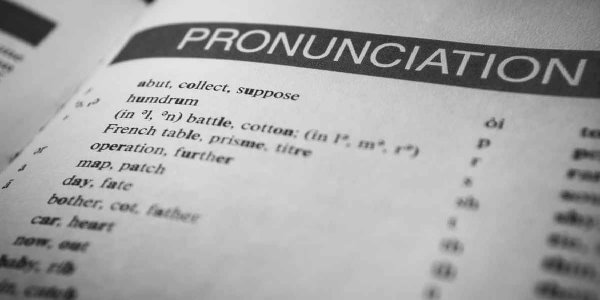The French influence on English language started its course with the Norman Conquest of 1066 AD. William of Normandy defeated England in the Battle of Hastings and the governance of England fell into the hands of the French. The ruling class influenced not just the socio-political aspects of England but also its language. The French influence was found in both vocabulary and grammar of English. The extent of French influence on the vocabulary of English may be studied under different categories.
French Influence on English Vocabulary
- Words related to governance and politics: Old English words “king” and “queen” remained in English, but nearly all other words related to governance and administration were borrowed from French. For example, crown, state, government, reign, realm, sovereign, power, minister, council, authority, parliament, people, nation etc.
- Words related to Feudalism: Feudalism, as a political system was an integral part of French influence as a whole. Therefore, there was a large intake of related words such as prince, peer, court, courteous, noble, honour, glory, heraldry etc.
- Military Words: Since governance of a nation is integrally connected to management of military forces, a large number of words related to the military affairs were borrowed from French. For example, war, peace, battle, siege, army, navy, officer, lieutenant, soldier. Words like challenge, danger, escape etc, which were borrowed as purely military words, are now used in general sense outside the military context too.
- Law Terms: Just like the armed forces, governance is intimately connected to law and order of a nation. Therefore, the French influence was felt in this sphere widely. Words like justice, judge, jury, suit, plaintiff, defendant, plead, summon, attorney, session, crime have all been borrowed from French. Some words, borrowed from French have gone into common use and now belong to everyday life. For example, marry, marriage, prove, false, heir etc.

- Ecclesiastical Terms: As ecclesiastical matters were also chiefly under the control of the upper class, we find a great number of French words connected to the church such as religion, service, trinity, saviour, angel, saint, abbey, cloister, altar, clergy, friar, miracle, preach, pray, sermon Some words introduced as ecclesiastical words now belong to common vocabulary, e.g., rule, lesson, save, tempt, blame, order, nature etc.
- Words pertaining to abstract ideas: Since the clergymen were influenced by French influence, they used French words to denote abstract ideas related to morality and philosophy. For example, virtue, vice, charity, duty, conscience, grace, cruel, chaste, covet, desire, jealous, pity, discipline, mercy, etc.
- Words denoting social interactions and positions: A great number of words, borrowed as a result of French influence, point to the relations between the Normans and the English, as well as their regular interactions. For example, sir, madam, master, mistress, command, obey, rich, poor, poverty, money, interest, cash, rent, servant etc.
- Words denoting family relationship: All the current forms of family relationship outside the immediate household have French names. For example, uncle, aunt, nephew, niece, cousin, etc.

- Words related to food and cooking: Since the French were noted for their culinary skills, the English readily adopted many French words related to cooking. For instance, sauce, boil, fry, roast, toast, pastry, soup, jelly Interestingly, names of the animals were English, but when they were served as food, they were called by French names. The following table shows this interesting phenomenon:

This list is an indicator of a social reality. While the care of the live animals was the responsibility of poorer English common people, their meat was enjoyed by the French high- class masters.
Likewise, the humble meal “breakfast” is an English word, while the fancier meals like dinner, feast etc are French.
- Words related to leisure and entertainment: Since the French masters had more time and means to enjoy finer lifestyle and modes of entertainment, many French words were taken up from French in this context. For example, joy, pleasure, ease, comfort, delight, flowers, fruits, leisure, chase, leash, falcon, scent, track, cards, dice, partner, trump, ace, deuce, sport, etc.
- Words related to dress and fashion: As the French led the fashion in the middle ages, a great many words of French origin, related to this sphere, are found in English. For example, apparel, dress, costume, garment, fashion, luxury, adorn etc.
- Words related to art and architecture: The French were known for their artistic supremacy. The Englishmen learnt a great deal from the French in this matter. A large-scale borrowing is a proof of French Influence on English art and architecture. For instance, general words like art, beauty, colour, image, design, figure, ornament, paint and technical words like arch, tower, pillar, vault, porch, column, palace, castle etc were borrowed from French. The artisans who pursued humble professions had English names, such as, baker, miller, smith, weaver, shoemaker, fisherman, shepherd However, the artisans who catered to the fashionable gentry had French names: tailor, carpenter, butcher, mason, painter etc. Humble furniture like “stool” is English, while decorative furniture (chair, table) has French names.
- Everyday expressions: French influence is also seen in case of exclamatory words such as alas, certes, sure, adieu, as well as in everyday expressions such as air, beast, age, change, cheer, cover, cry, large, latter, letter, place, point, turn This happened mostly because the ruled poorer sections of society loved to imitate the French masters in their regular conversation.

Assimilation of French Words
- Resemblance in words: In a few cases, a French word was easily assimilated in English because it happened to resemble a corresponding Old English word of the common Germanic origin. This is seen in case of words like rich, choice, island, main, nephew, etc.
- Resemblance in grammar: In grammar, both languages had certain similarities. This led to easy assimilation of certain words. For example, use, user, grief, grieve, etc.
- Synonyms: The Englishmen had the habit of using French words side by side with their native synonyms. In some cases, the native word is nearer to the heart of the nation and more common than French synonyms which are more literary and have finer meanings. For instance, native words like hut, help, begin, feed, hinder and hearty are more readily used than French words cottage, aid, commence, nourish and cordial respectively. In some cases, the native word became more literary (For example, deed, dale) than French equivalents (action, valley).
French Influence on English Grammar
A few instances where French influence is seen on English grammar may be listed as follows:
- Earlier, the inflection “es” was used for genitive singular of a few nouns to denote possession. The fashion of expressing the genitive by using “of” is a result of French influence.
- Substantives and adjectives were always taken over in the accusative case. In the plural, Old French had nominative without any ending and accusative in “s” ending. English popular instinct associated the latter form with the native plural ending in “es”.
- A tendency was seen to form English verbs from the stem of the French present plural of some verbs. For example, the French verbs were finir and punir. The French plurals of these verbs were finnisons and punissons, both containing “s”. The English people adopted this “s” ending and started using the verbs “finish” and “punish”.
- In some cases, French verbs were assimilated as verbs. For instance, French infinitive verb “diner” (to dine) changed to English noun “dinner”. Even new verb was formed from this new noun. Now we have the verb “dine” coming from “dinner”. Similarly, we have English words remainder(noun) giving rise to “remain (new verb) and user (noun) giving rise to use (new verb).
- In some cases, French infinitive ending “r” in verbs was not modified and accepted as it is as verbs. For example, surrender, tender, render, etc.

French Influence on Accent and Pronunciation
The extent in which the French influenced the accentuation and pronunciation of English words may be studied under the following heads:
- Sound changes:
The long “i” sound in French has become “ai” in English: fine, price
The long “u” sound in French has become “ou” in English: spouse, tower
The long “a” sound in French has become “e” in English: grace, change
The long “e” sound in French has become “i” in English: beast
- Accent changes:
Many French words, accented on the final syllable, is now accented on first syllable after they are borrowed into English. This happened because of value stressing, where the first syllable is felt as psychologically most important, because of contrast stressing or because of rhythm stressing.
French Influence and Hybridism
A hybrid is a composite word formed of elements from different languages. With the introduction of the French words, the first traces of hybridism were visible in English. Examples of hybrids are:
- Native prefix+ French word: over + power = overpower
- French prefix+ Native word: re + birth = rebirth
- French word+ Native ending: colour +less = colourless
- Native word+ French ending: trust + ee = trustee

Old French Loans Versus New French Loans (Norman vs Parisian)
The French language has undergone considerable changes since Norman conquest. Therefore, these changes are reflected in comparison between the French words borrowed during and just after the Norman conquest and those borrowed much later from Paris or central France. Some of these changes are listed below:
- Norman French “k” sound was changed into Parisian French “ch”. The word “catch” came from Norman French while “chase” came from Parisian French.
- Norman French “ch” sound was changed to Parisian “s” sound. Words like “chase”, “launch” “Charles” etc came from Norman French while “champagne”, “charlotte”, “chauffer” came from later Parisian French.
- Norman French “w” was changed to “g” in Parisian French. Words like “warden”, “wage” came from Norman French while “guardian”, “gage” came from Parisian French.
- In many cases, “g” of Norman French has changed to “j” in Parisian French. While “gaol” is older Norman borrowing, it is also denoted as “jail” with “j” of Parisian French.
Some early French loan words have been curiously reshaped into the recent forms. For instance, Old French “viage”, “leal”, “flaute” has been reshaped into “voyage”, “loyal” and “flute” respectively. In some cases, some early French words have changed their meaning in both French and English together. For instance, Middle English “douter”, from Old French “douter” meant “to fear”. Now, in both the languages the meaning has changed (doubt).
The Extent of French Influence Down The Ages
The importation of French words, which started with the Norman Conquest, has continued up to the present day. At first, there were two separate class of people, speaking two kinds of languages. Then, through linguistic assimilation, English emerged as the standard language. Early in the thirteenth Century France, as a high seat of culture and education, exercised a great influence on the language of England, a tendency that continued from the middle ages down to the eighteenth century. Even in the Twentieth Century, because of wartime alliance between England and France, the process of borrowing from French has continued.
Additional Reading
No posts found!




Really helpful and easily described
In a easy language.